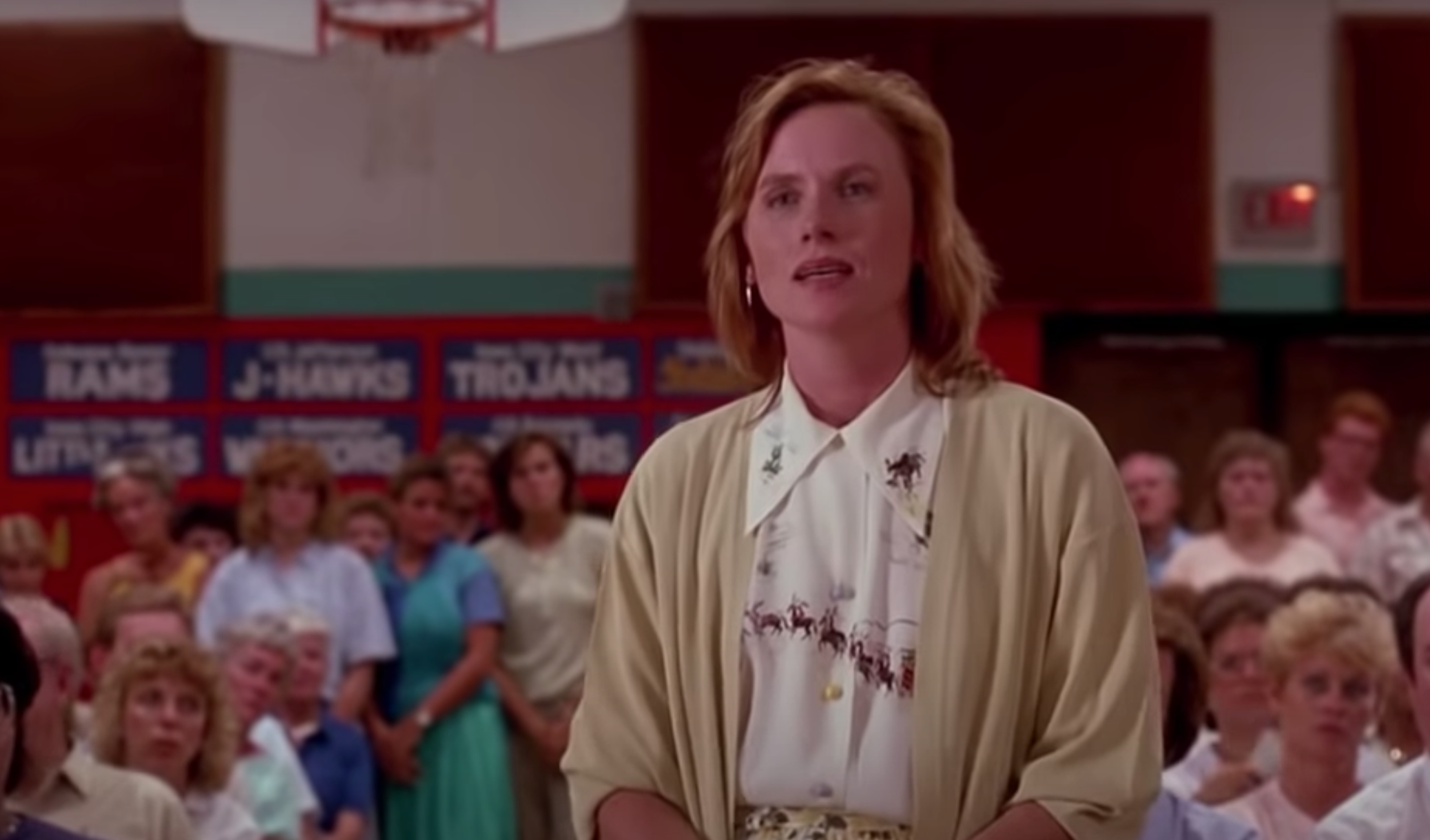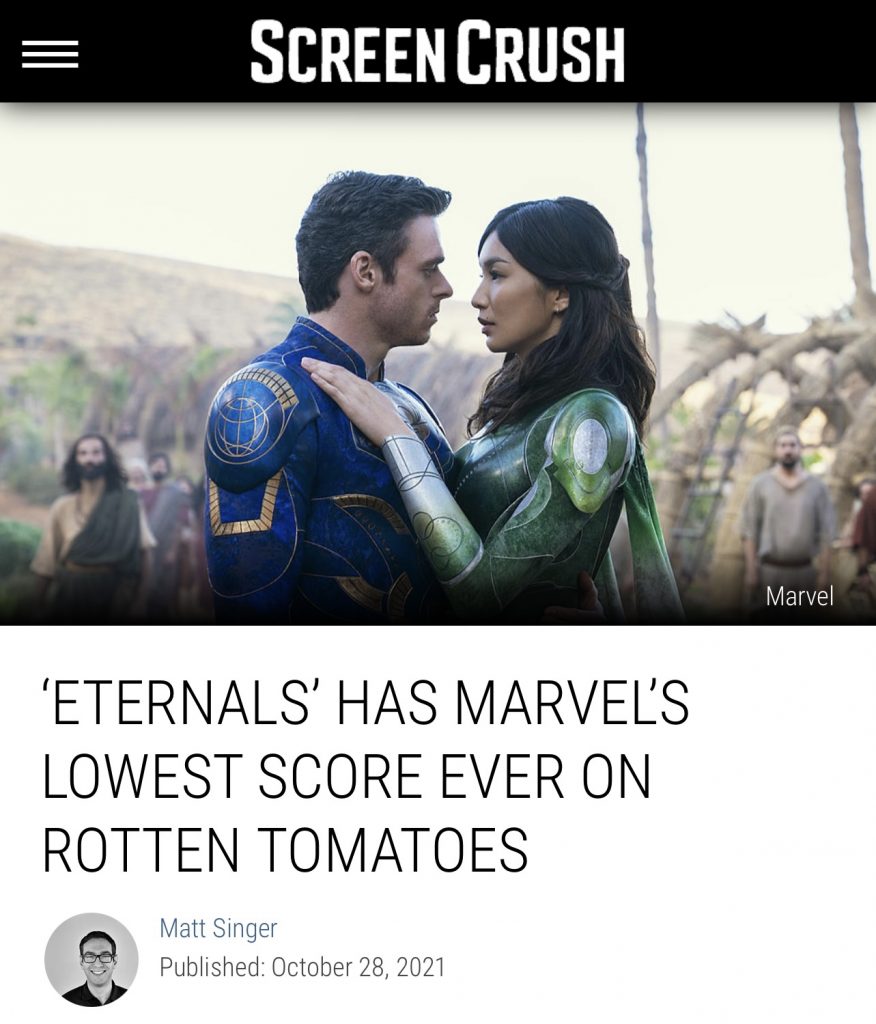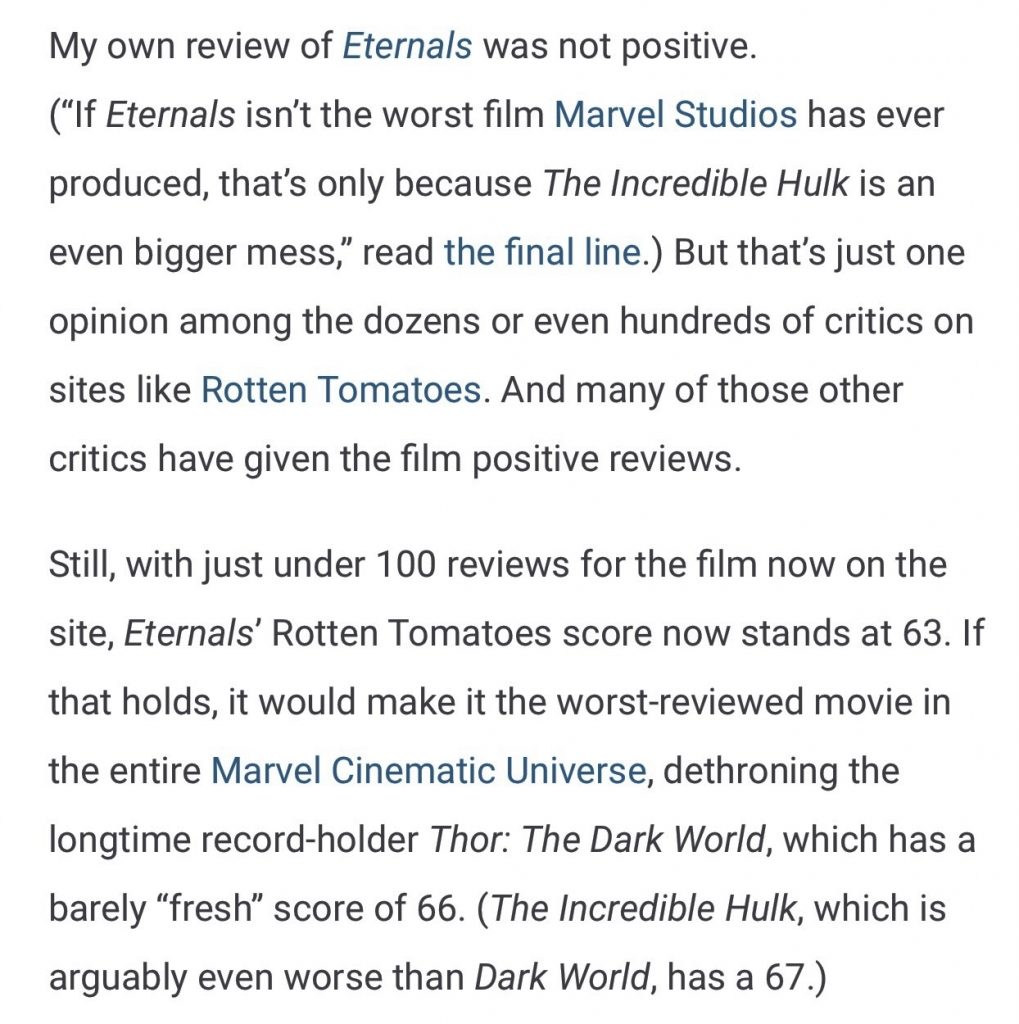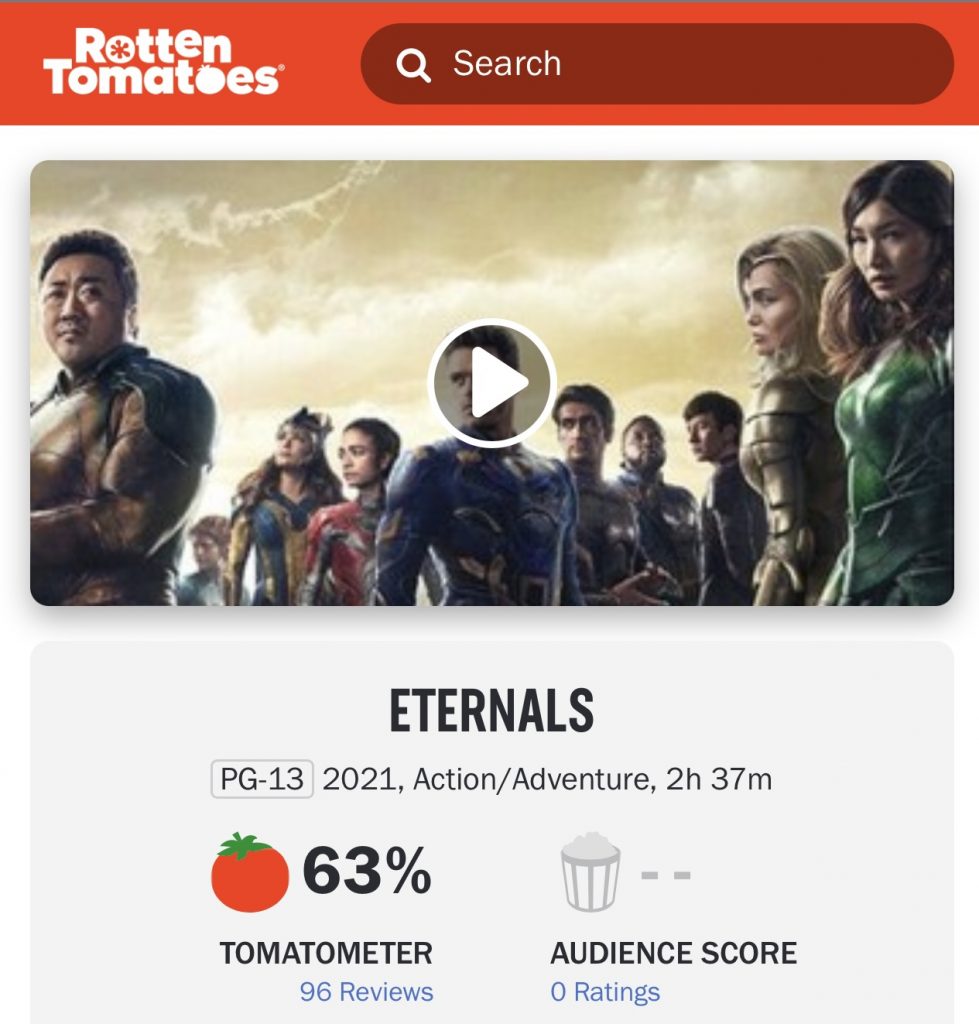Or better yet, their 50s. Just thinking about this is kind of arousing. Because I hate these guys. Even though this video was shot over a year ago. I’m sure most of them are still arrogant little shits.
Daily
Fahrenheit 451
How exactly is the Ottawa School Board that decided to remove “Lord of the Flies” from the school cirriculum…how exactly are these guys any different from that “Nazi cow” from Field of Dreams who wanted to ban the books of “Terence Mann” (i.e., James Earl Jones)?

Trump-Friendly Bullshit Enabler
I see the face of the red-haired Mark Zuckerberg, 37, and I immediately wish I was seeing Jesse Eisenberg instead. Sometimes (this morning for instance) I’ll find myself muttering “fuck you, psychopath.” I don’t like the guy. I don’t like his tennisball haircut, his predatory eyes, his reputation as a lying, soul-less opportunistic prick.
Since 2018, Facebook algorithms have been serving evil ends. Frances Haugen: “Facebook is optimizing content that gets engagement, but its own research is showing that content that is hateful, divisive, polarizing…it’s easer to inspire people to [feel angry[ than it is to inspire other emotions.”

Very Broad, Very “Acted”
I have no problem with English-speaking actors playing Italians with theatrically emphasized Italian accents. As long as the accents sound more or less the same, fine. But boy, is Lady Gaga “acting” here or what? Lucretia MacEvil meets Lucrezia Borgia.
This is almost SNL-level…broad to the point of the actors essentially saying to the audience “we are acting here…you see that, right?” There’s nothing wrong with this approach either. The idea seems to be that with the apparent exception of Adam Driver‘s Maurizio Gucci, the Gucci family not only saw themselves as grand theatrical types but performed that way on a day-to-day basis.

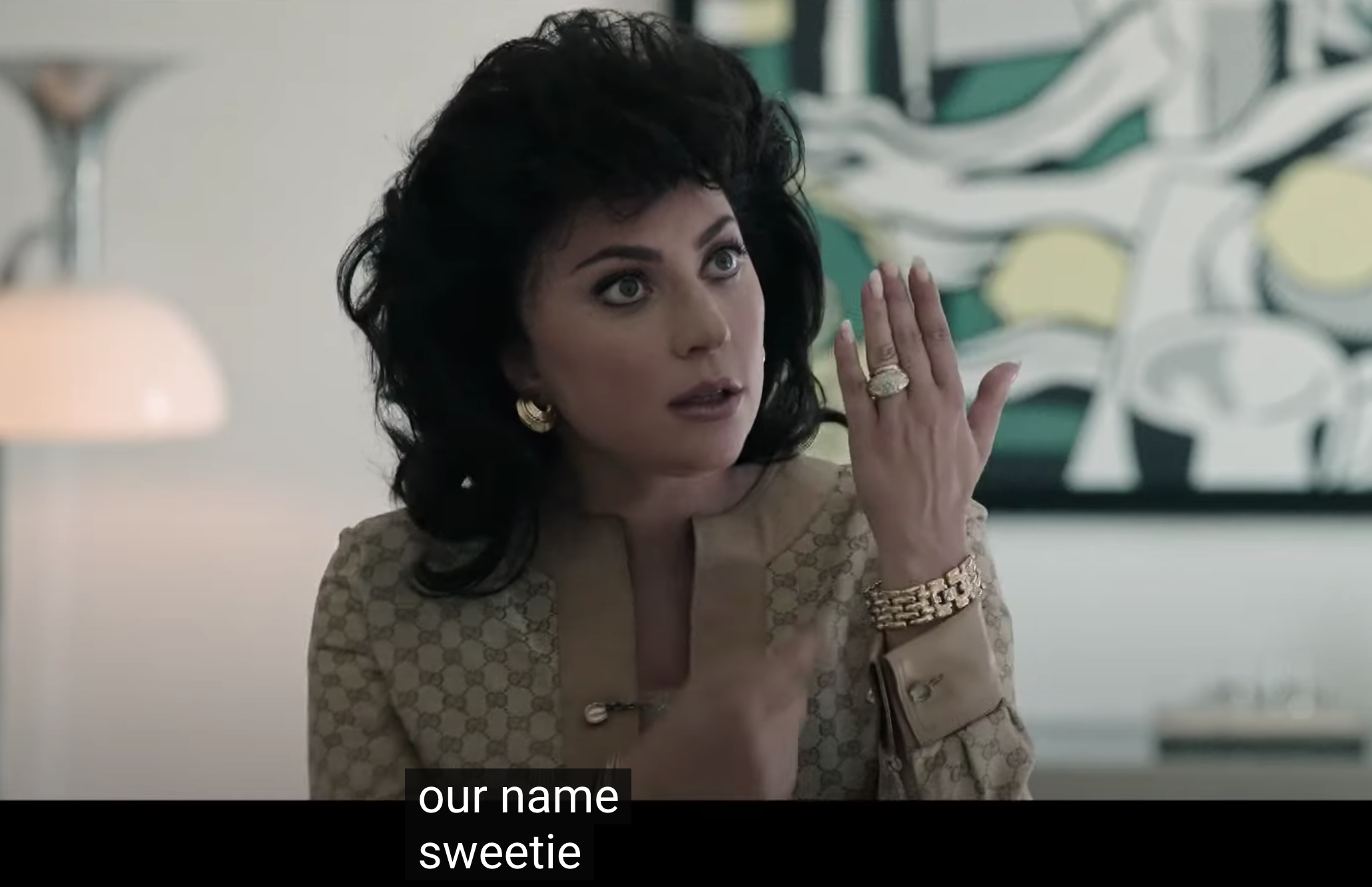
Who Watches DVDs?
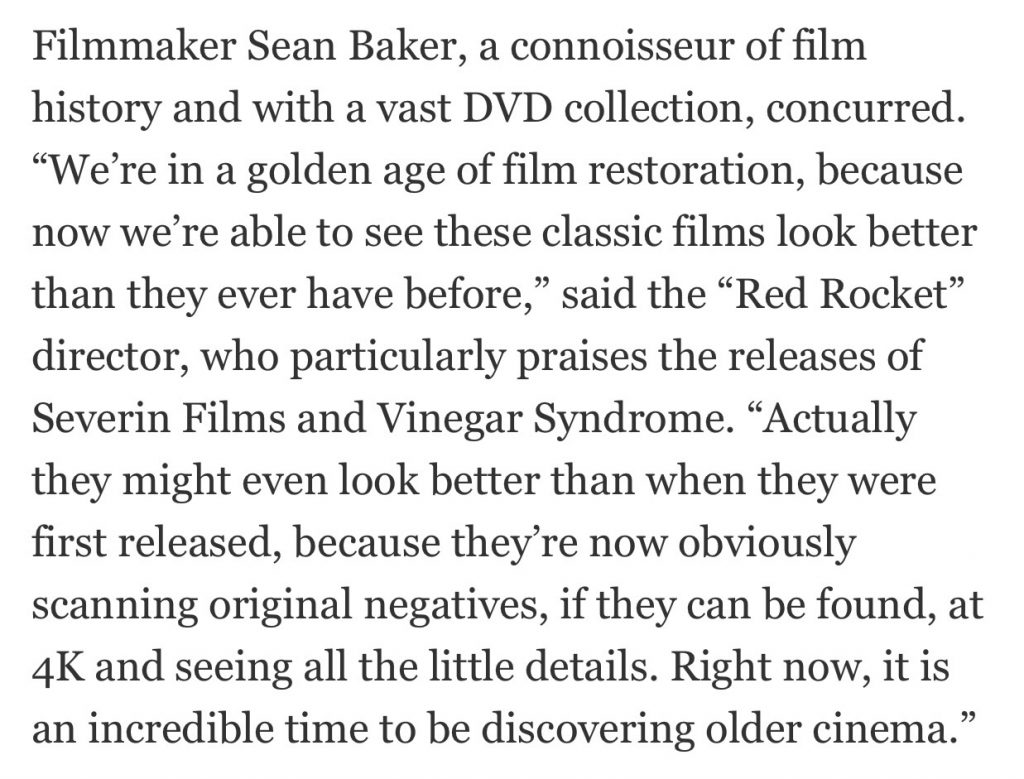
— From a just-posted (10.28) IndieWire piece titled “What’s The Future of Classic Film Appreciation?”
HE comment: Baker is correct, of course. HD renderings of the visual luster and needle-sharp detail in classic films have never been better. Why, then, is Baker saluted for owning “a vast DVD collection”? By 2021 standards 480p viewings are, no offense, a waste of time. I haven’t watched a DVD or an SD streamer since 2012 or thereabouts. (Okay, maybe once or twice.) Life is too short and HD remasterings look too good these days. Why watch something that you know is going to offer diminished visual values?
Funny Friendo
“I’m watching episode #8 of Impeachment, and there’s a moment when Colin Hanks reads the label of the fabled blue dress and says “size 12.” And I’m scoffing and thinking “there’s no way Beanie Feldstein is a size 12. She’s a 14 minimum, or a 16. Monica herself could be a 12…”
Noyce Tribute in Paris
The Cinematheque Francaise tribute to Phillip Noyce kicked off Wednesday night (10.27) and will run until Sunday, November 7. The after-event happened at L’auberge Aveyronnaise. Congrats and best wishes to Phillip, wife Vuyo Dasi, beautiful daughter Ayanda, colleagues & collaborators Jason Clarke and Svetlana Cvetko, et. al.
I wish I could’ve been there. I wish I was in Paris, period. I miss it.
All hail Newsfront (my first taste, way back in ’78), Heatwave, Dead Calm, Patriot Games, Clear and Present Danger (my personal favorite), The Saint, Rabbit-Proof Fence. The Quiet American (my second favorite), Catch a Fire, Salt, the under–rated Above Suspicion and Lakewood.
A big hoo-hah dinner at the Australian embassy is slated for Friday night. I’ll be missing that one also.
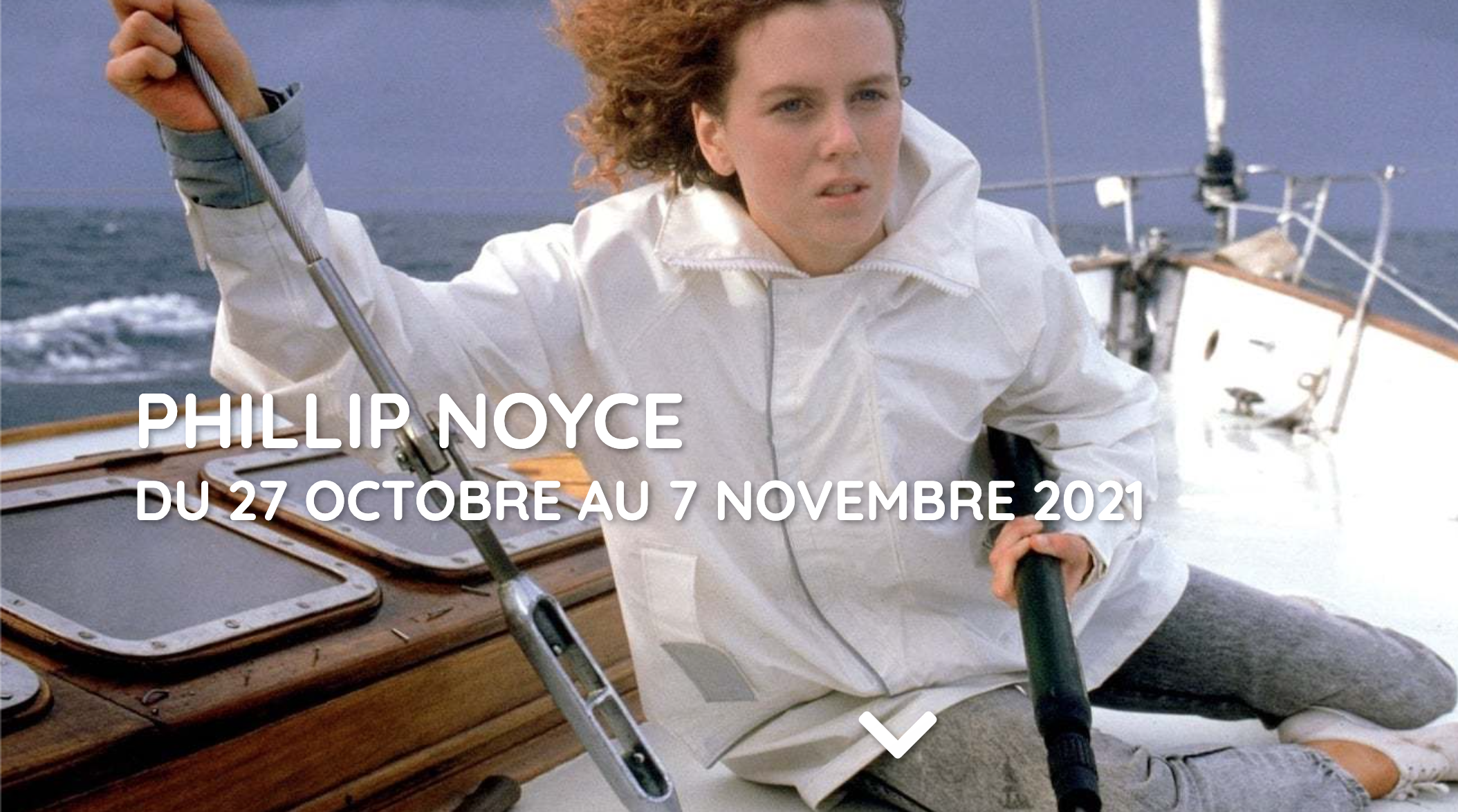

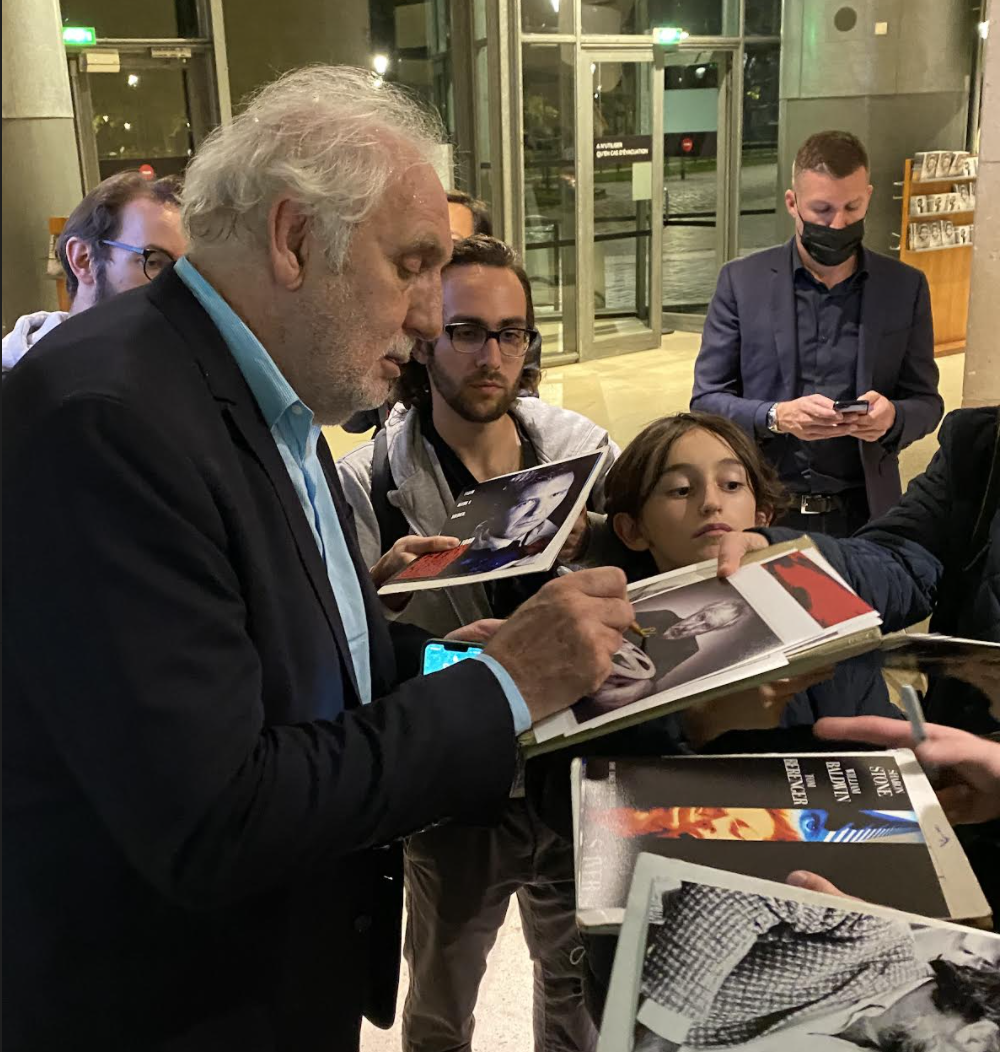


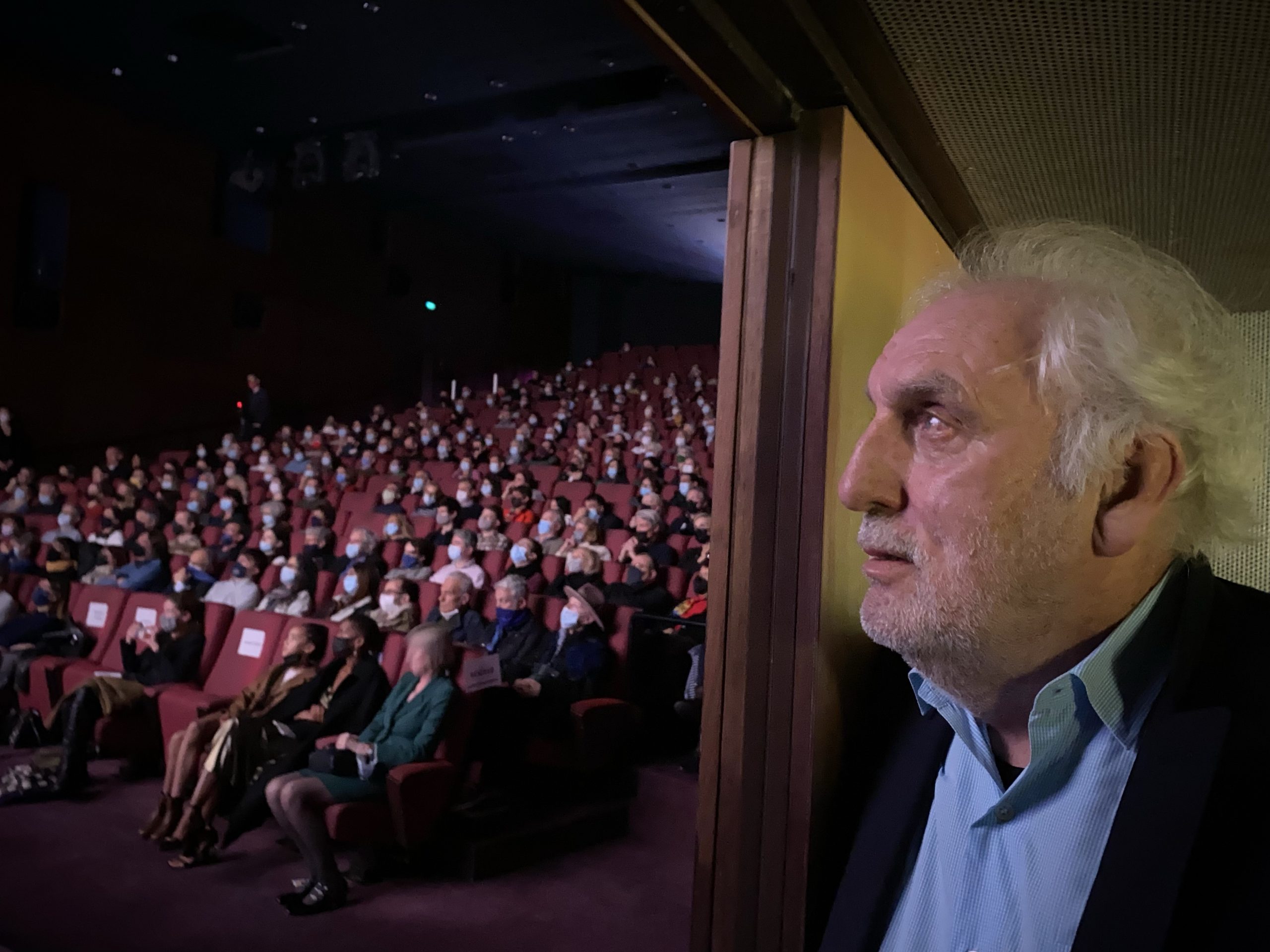

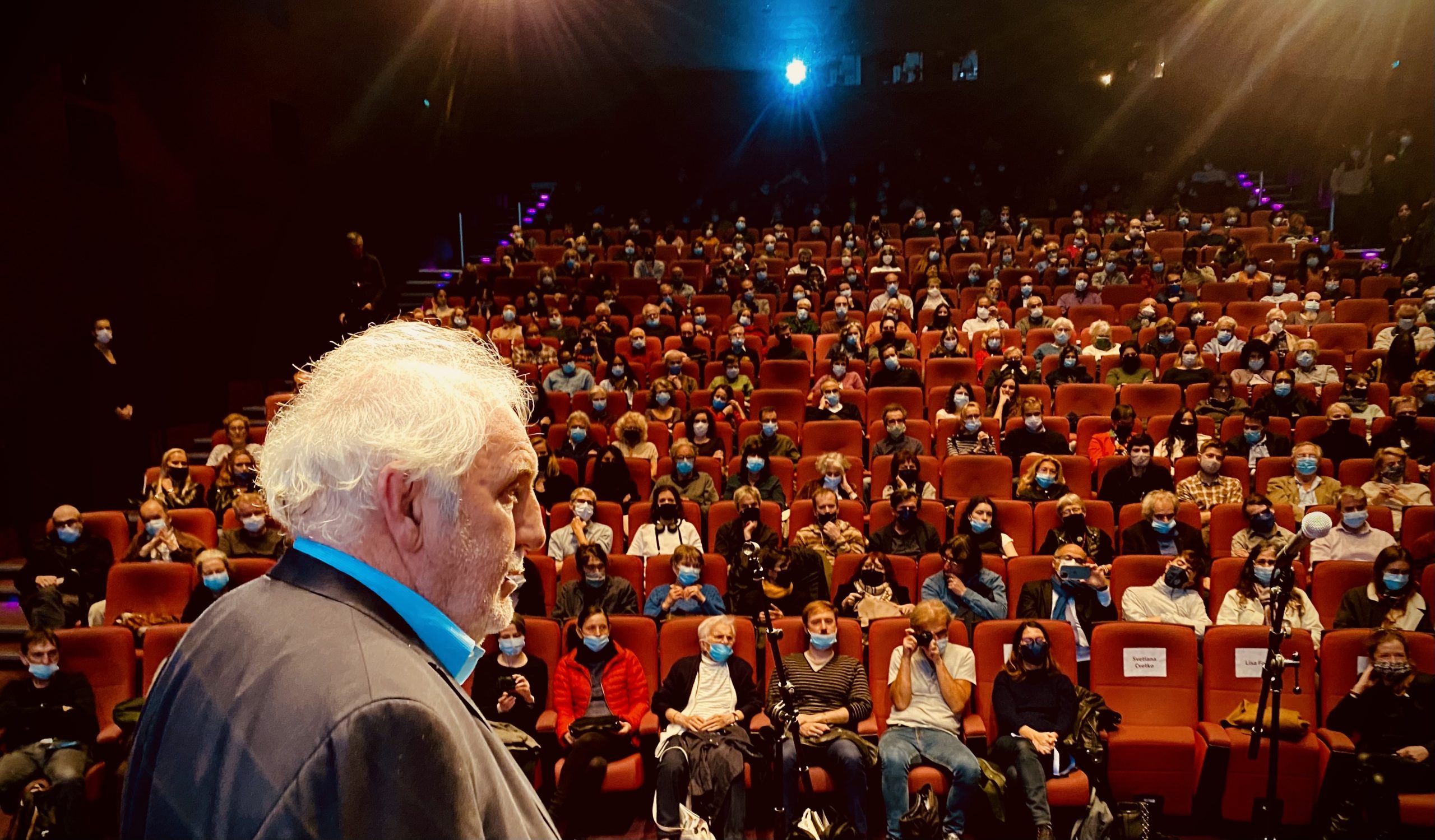
If You Were An Academy Member in ’71…
…and you were choosing one of the five nominees for the Best Picture Oscar, which would you go for and why? The fucking nominees were Patton, Airport, Five Easy Pieces, Love Story and M*A*S*H.
Hollywood Elsewhere would have definitely voted for Five Easy Pieces, which today is easily the sturdiest and most haunting of the five. Especially that manic goofy piano-playing on the back of the truck scene near Bakersfield, and also the rainy-foggy truck-stop finale (Jack left his jacket in the men’s room!).
Patton is also an excellent watch by today’s standards, and no one will argue against the idea of George C. Scott‘s magnificence as the proud and suffering general, and the ending (“All glory is fleeting”) is one of the best ever, but it seems a bit stodgy now.
My third favorite is M*A*S*H, which has great comic chops and a nice serving of zeitgeist-channelling anti-establishment attitude, but isn’t all that substantial at the end of the day.
Love Story and Airport were regarded as embarassments even back then, and nominating them for Best Picture…please.
In actuality Patton won. The Oscar telecast happened on 4.15.71.
“Benedetta” Hasn’t Opened Yet?
Nope, another five weeks to go. Why is it that I feel Benedetta‘ed out?
Heavy Heart
In Nora Fingscheidt‘s The Unforgivable (theatrical 11.24, Netflix 12.10), 50ish Sandra Bullock plays a woman who moves in with her younger sister after serving a 20-year sentence for a violent crime.
In Philippe Claudel‘s I’ve Loved You So Long (’08), Kristin Scott Thomas played a 40ish doctor who moves in with her younger sister after serving 15 years for the murder of her son.
13 year-old HE blurb: “In the remarkable, deeply penetrating I’ve Loved You So Long (Sony Classics, 10.24) , Kristin Scott Thomas gives an immensely sad but highly sensitive and attuned performance that you just know, minutes into it, will be with you the rest of your life. She draws you in like some sad-eyed lady of the lowlands, but she never sells anything. Start to finish, she dwells in this fascinating zen-grief space that just ‘is.’ She owns it…and from the moment the film begins, owns you.”
Trans In What Sense?
Deadline‘s Denise Petski is reporting that FX has sprung for a pilot of Belated, a half-hour comedy series that’ll be directed, written and executive produced by Peter Tolan (Rescue Me).
Belated “follows an unexpected intergenerational friendship between Owen, a recently out man in his 40s, and Clay, a 17-year-old trans teen, as Owen and his ex-wife and children attempt to find their new normal.”
HE questions: (a) Will Owen be played by a deep-voiced, sharp-witted African American whose head is shaved clean and who likes to occasionally smoke cigarettes?, (b) Tolan will presumably keep his characters from engaging in any sort of sexual activity with each other — Owen can’t “do” Clay or vice versa. Owen’s ex-wife needs a straight Republican boyfriend who has a voice like Ben Shapiro‘s and a snippy attitude about guys who wait until their mid 40s to decide that they’re gay. Clay and the ex-wife also have to steer clear of each other. And yet sexuality is a big, big part of who they are.
Director-writer friend: Woke comedies are being embraced right now. Alternate titles: Pandering, Curb Your Genderism, The Woke Couple, Nonbinary in the Park.

